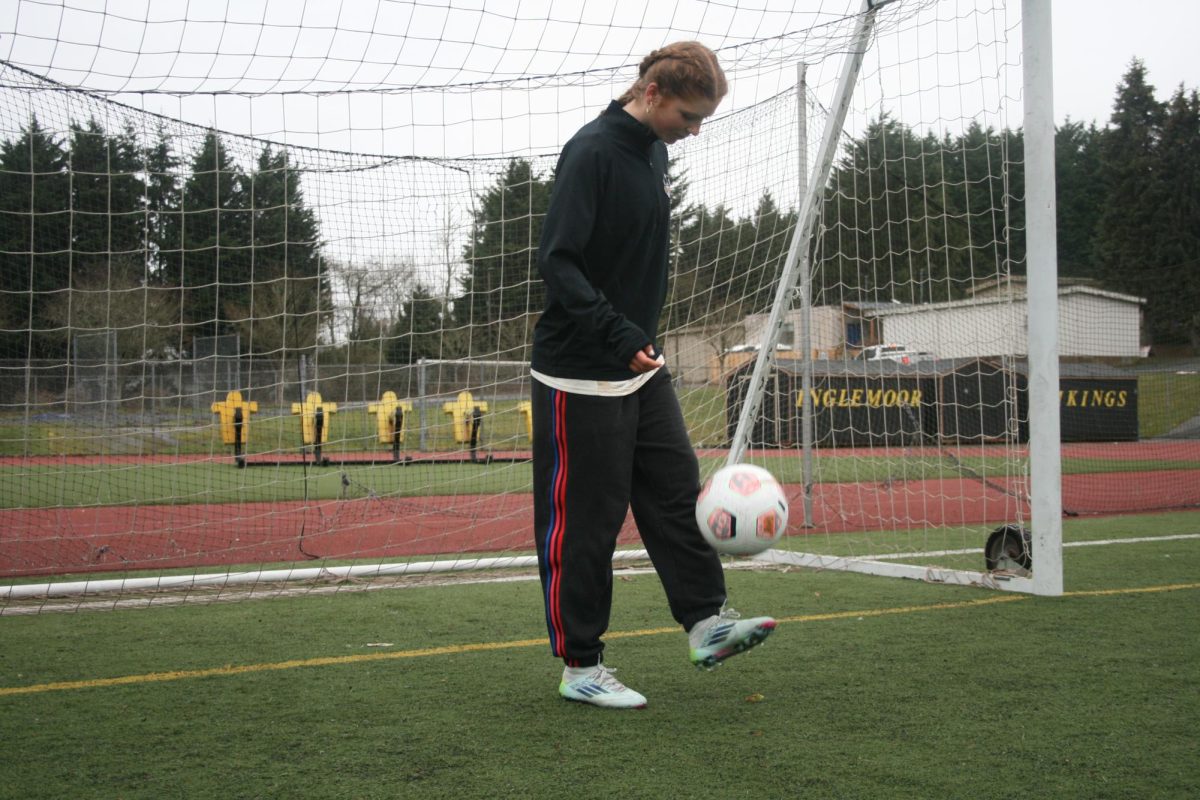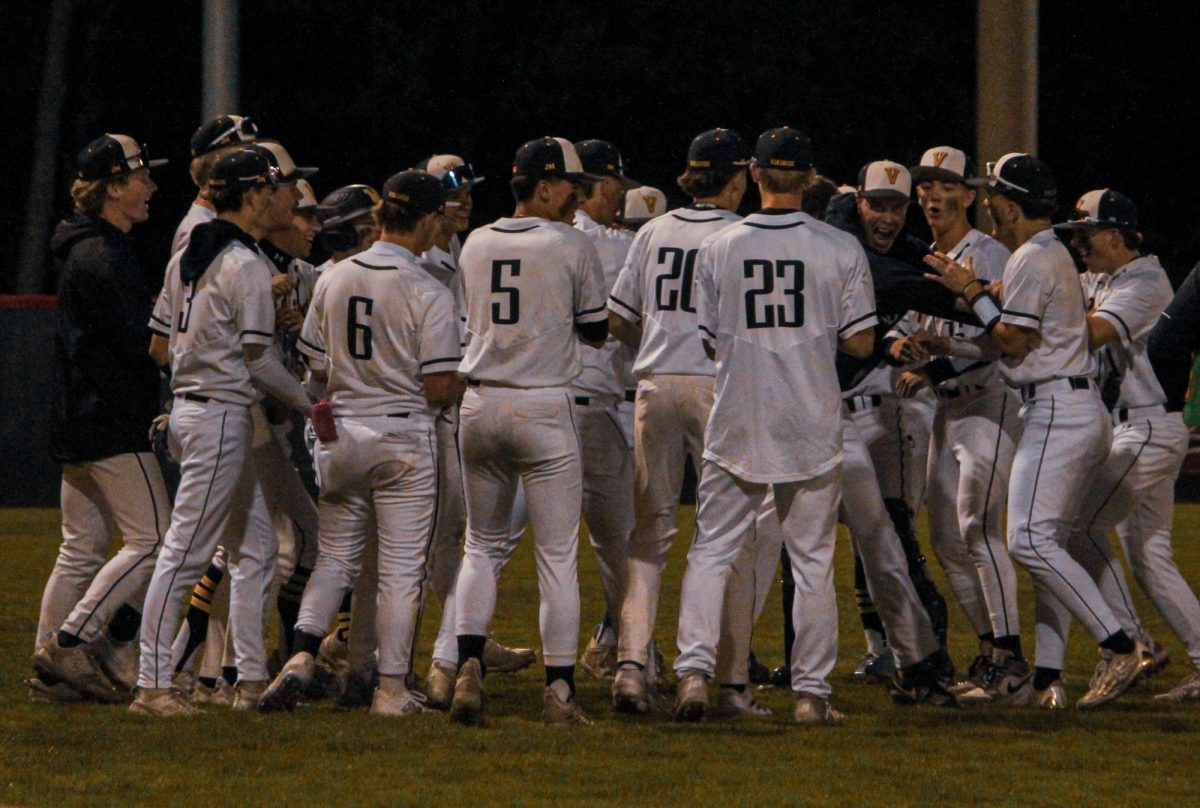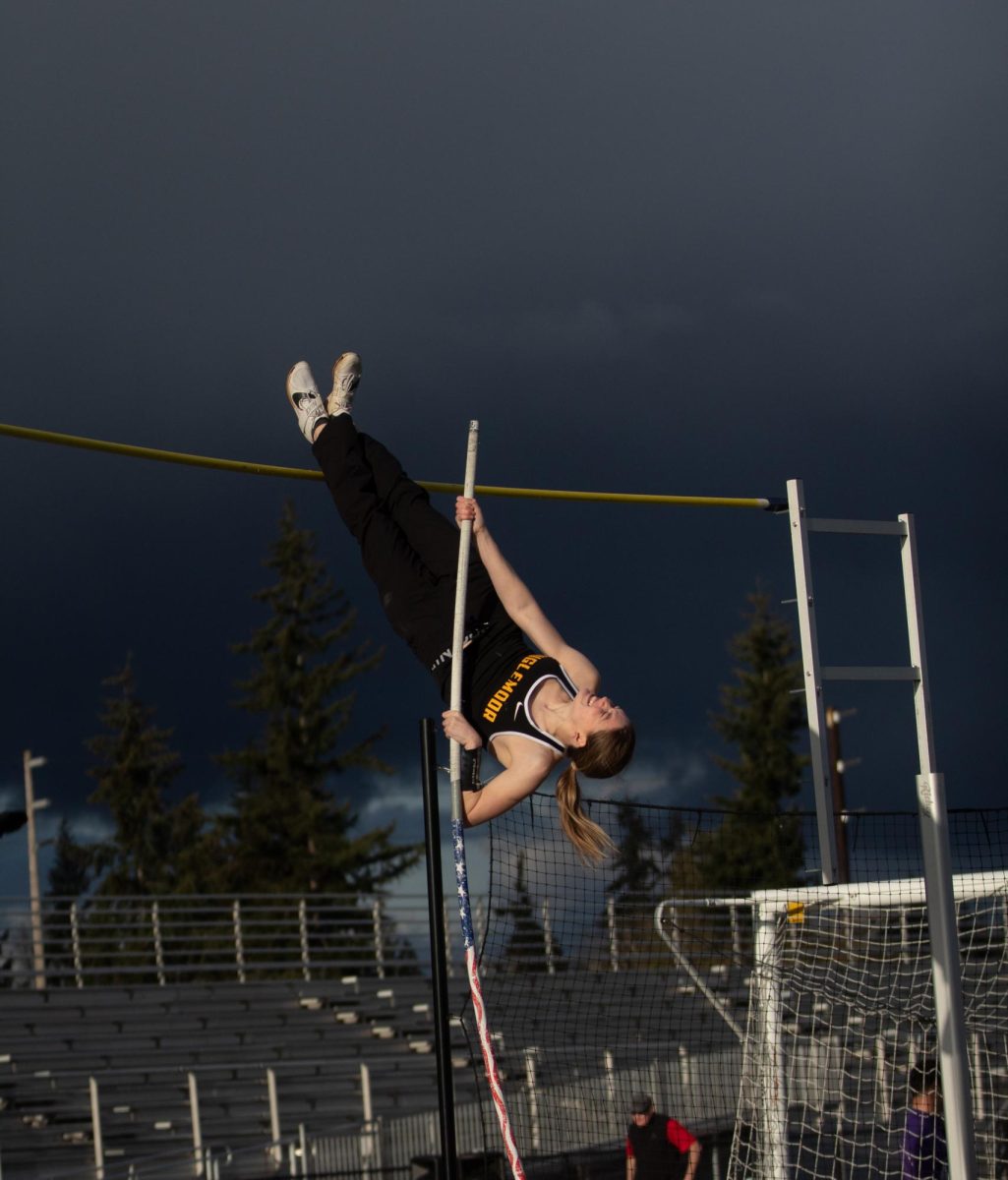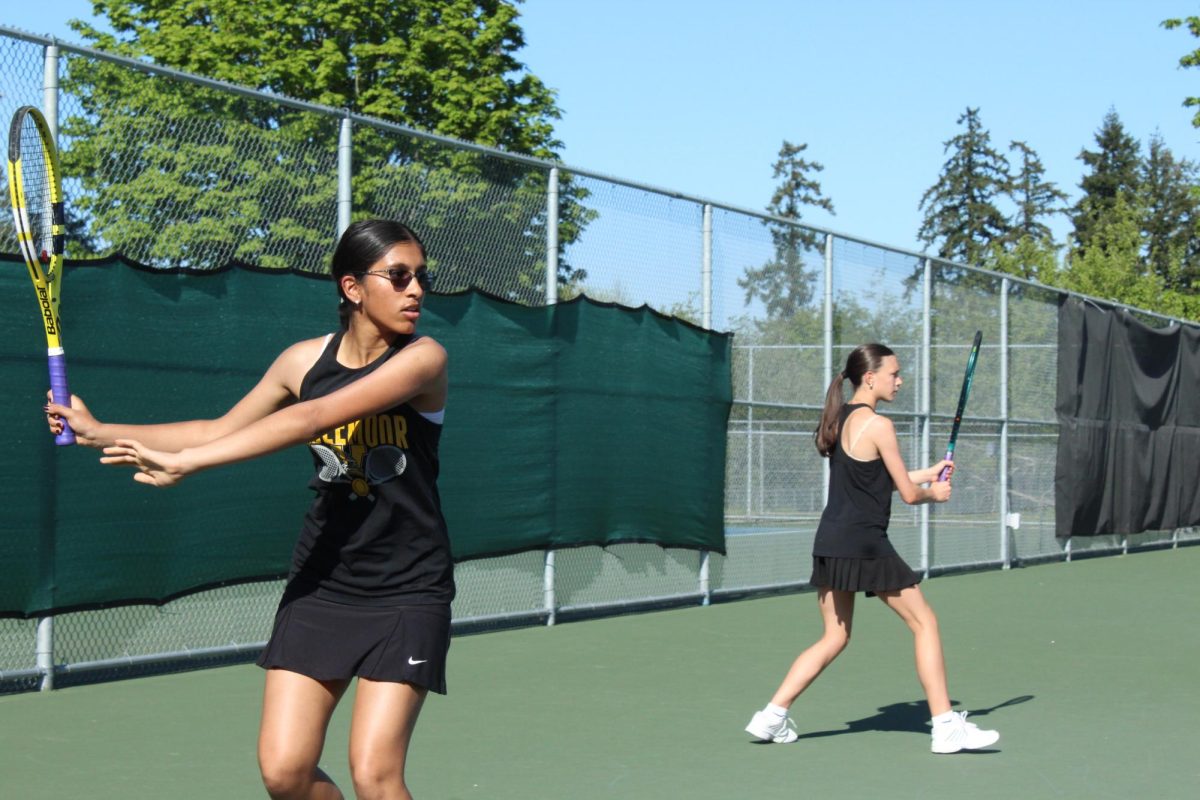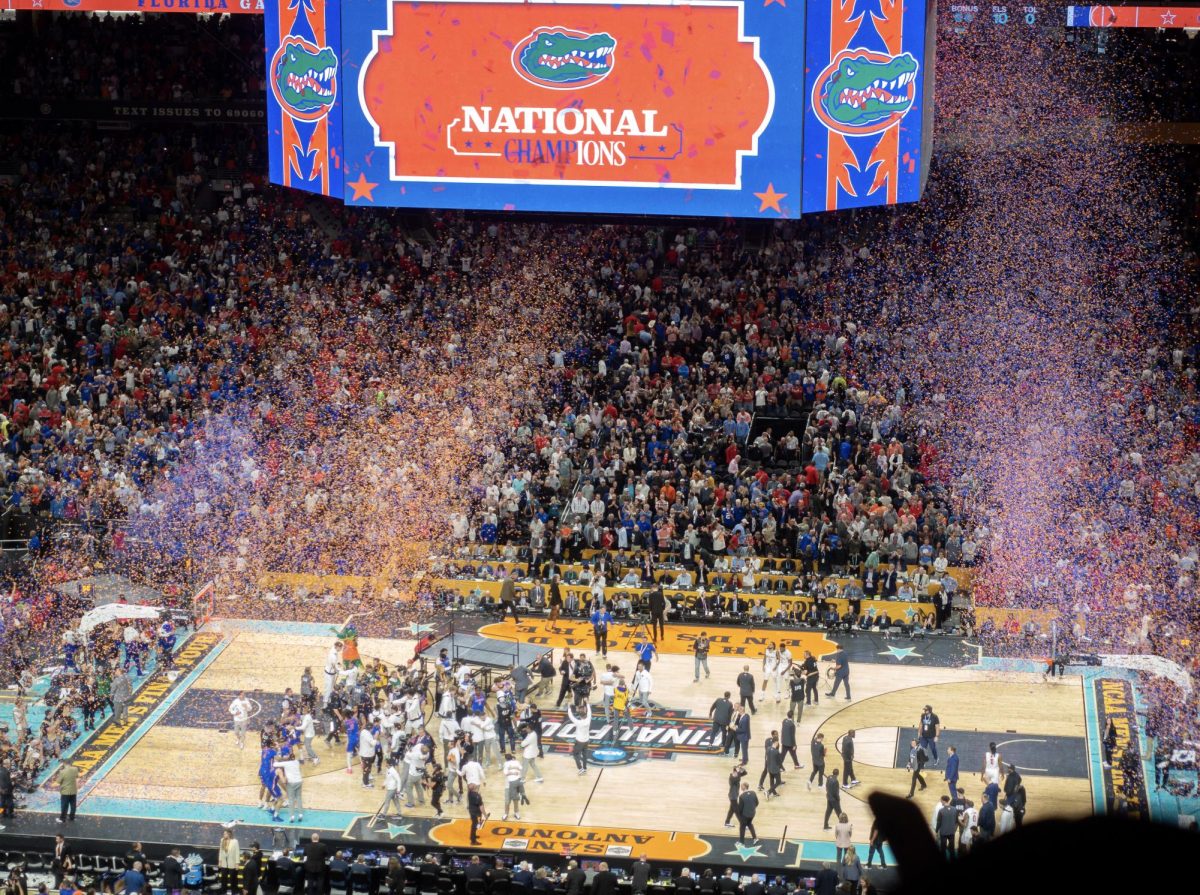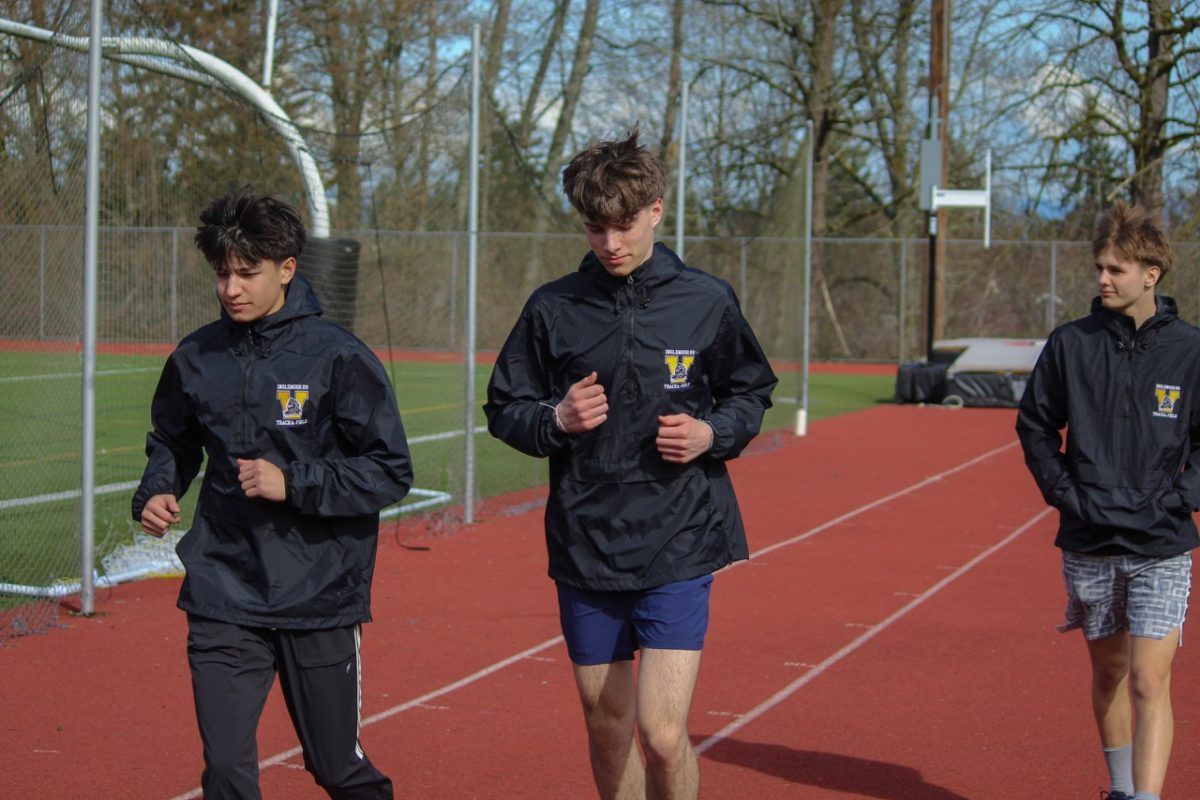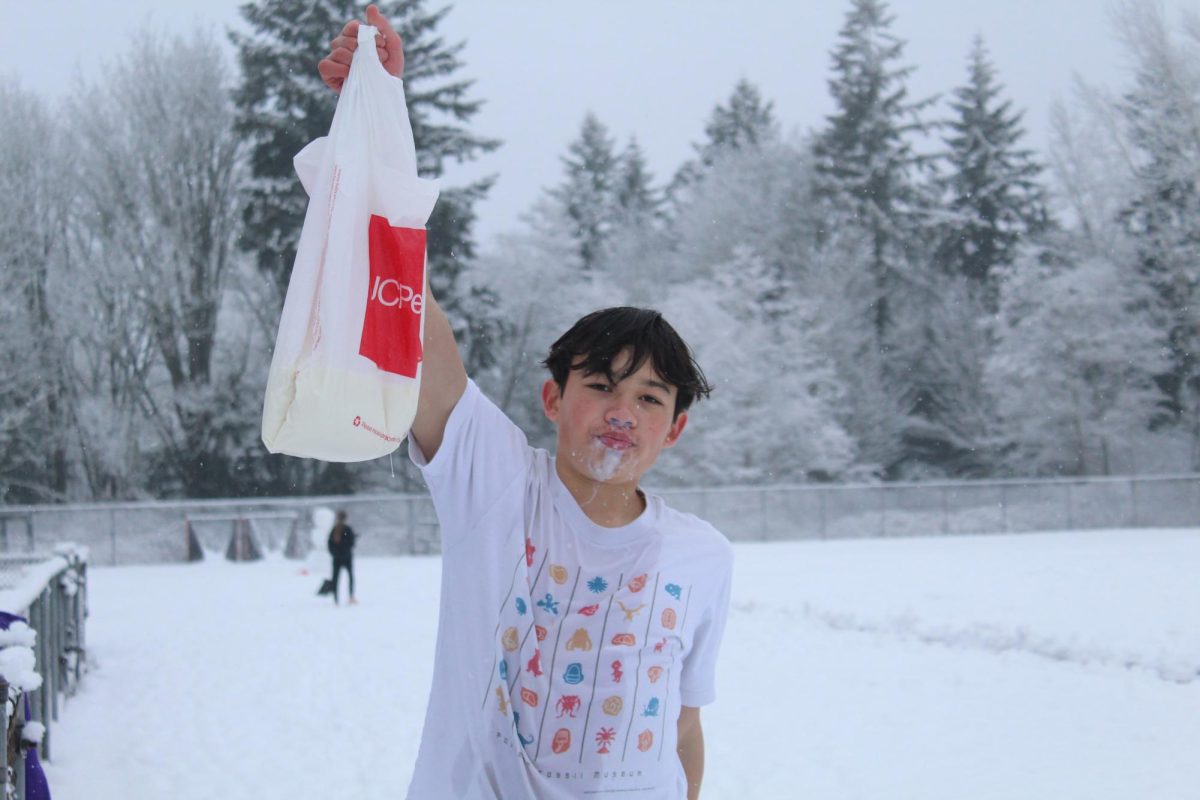Off-season training allows athletes to stay in shape and active when not competitively playing their sport. Crew co-captain and senior Neve Gelatt (she/her) said that she has to work out immediately afterschool to balance her other responsibilities. She has committed to Dartmouth College for Division I rowing.
“I eat a pre-practice kind of snack, and then I stretch, and I’ll row for anywhere between an hour to an hour and a half, and in that time, I might also lift some weights,” Gelatt said.
Gelatt said that Inglemoor crew coach Doug Van Gelder sends her off-season workouts, which aren’t always easy.
“They can be very challenging at times, so it’s very much a mental game of actually committing to doing the whole workout,” Gelatt said. “So, sometimes I’ll ask him how to modify it if I feel like it’s too much for me.”
As crew season starts again in the spring, Gelatt said that nutrition plays a big role in preparation for the season. She said that it’s important for her to eat a lot of carbohydrates and up her caloric intake.
“I’ll eat a lot more just because I’m trying to get a lot stronger,” Gelatt said. “And if I’m lifting heavier, which I usually do in the month leading up, I require a lot more protein. The workouts are less cardio-based and more sprint-based.”
Gelatt said that during her off-season, breaks are necessary for her to avoid overworking.
“The off-season is supposed to be a break from your normal sport, so if I don’t feel up to it that day, then I’ll usually just sit down and stretch, because that’s something that will still benefit me in the long run,” Gelatt said. “And taking a break to actually enjoy is very important, and you should while you can.”
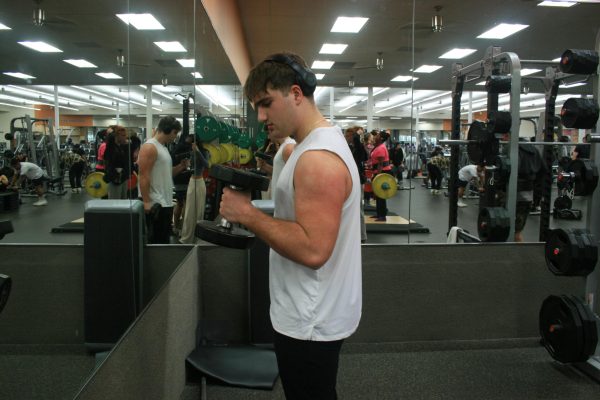
Due to the intense physical requirements of the football season, senior and varsity football player Brandon Henkens (he/him) said he eases into workouts before full-on off-season training. Henkens will continue playing at the University of Puget Sound this fall.
“End of the season, everything hurts,” Henkens said. “Just moving hurts.”
For serious football players like Henkens, it’s not just the play in the season that matters, but the training in the off-season, too.
“Typically, I’d have four days of weight training,” Henkens said. “And one extra day of speed, agility and flexibility training.”
For Henkens’ position as a lineman, both strength and agility are crucial for success. Explosiveness is a valuable quality, whether to protect the passer from the rush or to shield the runner from oncoming defenders. Henkens splits his weight training days into different muscle groups.
“One day I’d hit chest, one day back and shoulders, another day for legs and so forth,” Henkens said.
For his speed and agility training, Henkens maintains a similar strict regimen. Henkens said he starts out slow with stretches, jogs and sprint bursts and then transitions into 40 and 100-yard sprints. He said he doesn’t have to train his vertical movement like a wide receiver would because, as a lineman, his focus lies in side-to-side motions. He practices his lateral movements with cone shuffles and sprints.
Junior and varsity soccer player Thea Budden (she/her) said that the members of the team are very involved even during the off-season. Budden said that her teammates’ support is invaluable for her team’s success.
“We’re always just pushing each other and trying to compete against each other, and other clubs around are working just as hard,” Budden said.
Budden said that her training focuses more on speed than on strength with lots of plyometrics, which are fast-paced exercises such as burpees and box jumps.
“For soccer players, it’s not so much like bodybuilding. It’s more explosive agility stuff,” Budden said.
Budden said that recovery is a essential part of her off-season training but she sometimes finds this balance challenging.
“(It’s challenging) not getting too overworked, like finding a balance between your social life, family time and your personal time,” Budden said.
While many varsity athletes may follow stricter off-season regimens, some, like sophomore tennis player Kamilla Shapiro (she/her), prefer a more flexible approach.
“I really don’t track my progress,” Shapiro said. “I try to be consistent, I do a lot of footwork and drills on the courts. I go to the gym, run on the treadmill, do cardio and lift weights.”
Shapiro said that she takes lessons from the varsity coach during the summer and fall, but training can be harder in the winter.
“In the winter, it kind of gets difficult because she isn’t here in the winter and I usually — just once a week — go to East Side tennis club and play there,” Shapiro said.
Physical training is just one part of the off-season though. Shapiro said that she spends much of her time practicing the other half: mental training. She said she maintains the mentality that she always wants to improve her game.
“There’s a lot of competition,” Shapiro said. “There’s a lot of people that may be better than you, and you want to be better and be good for the new season.”



